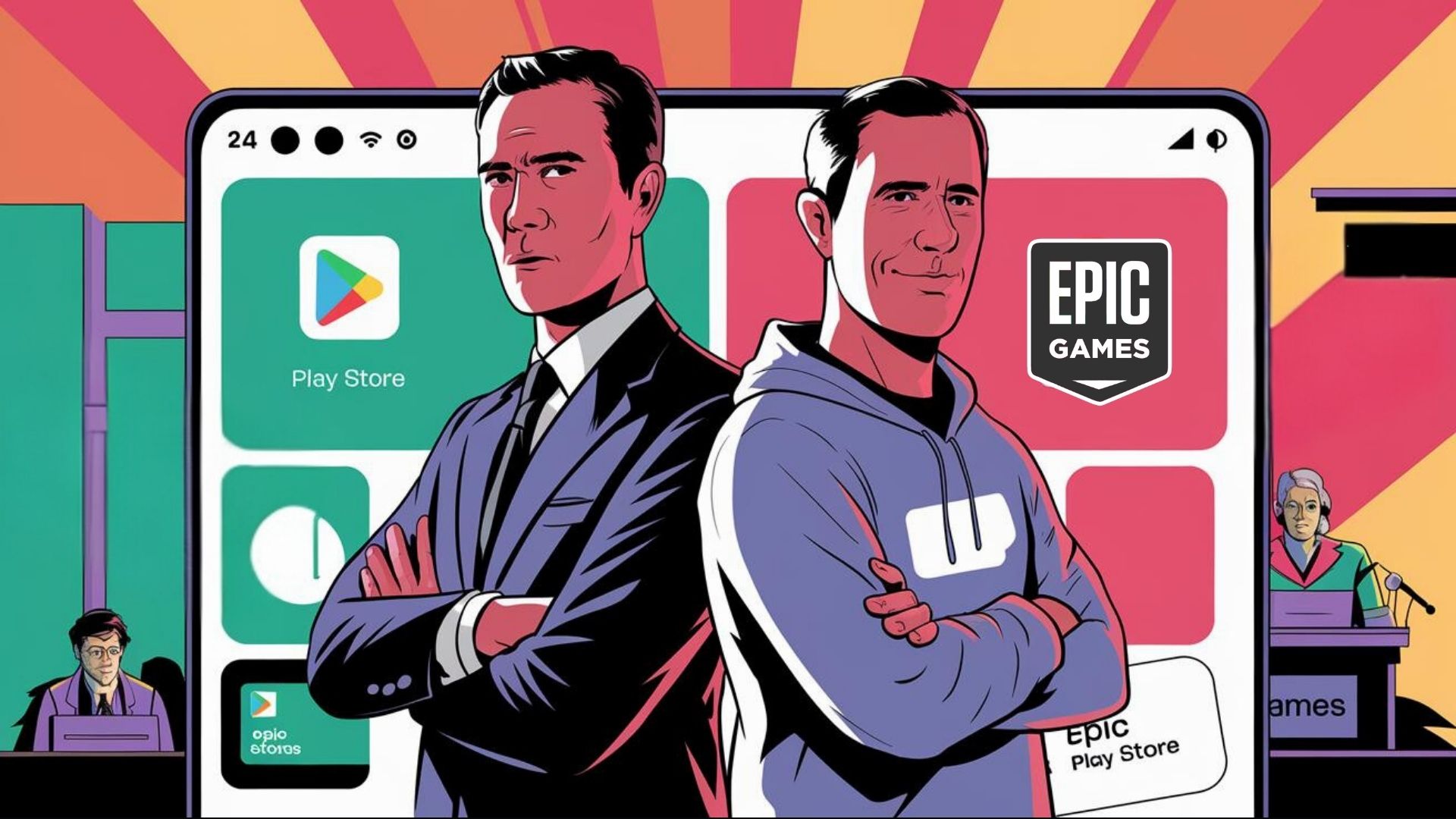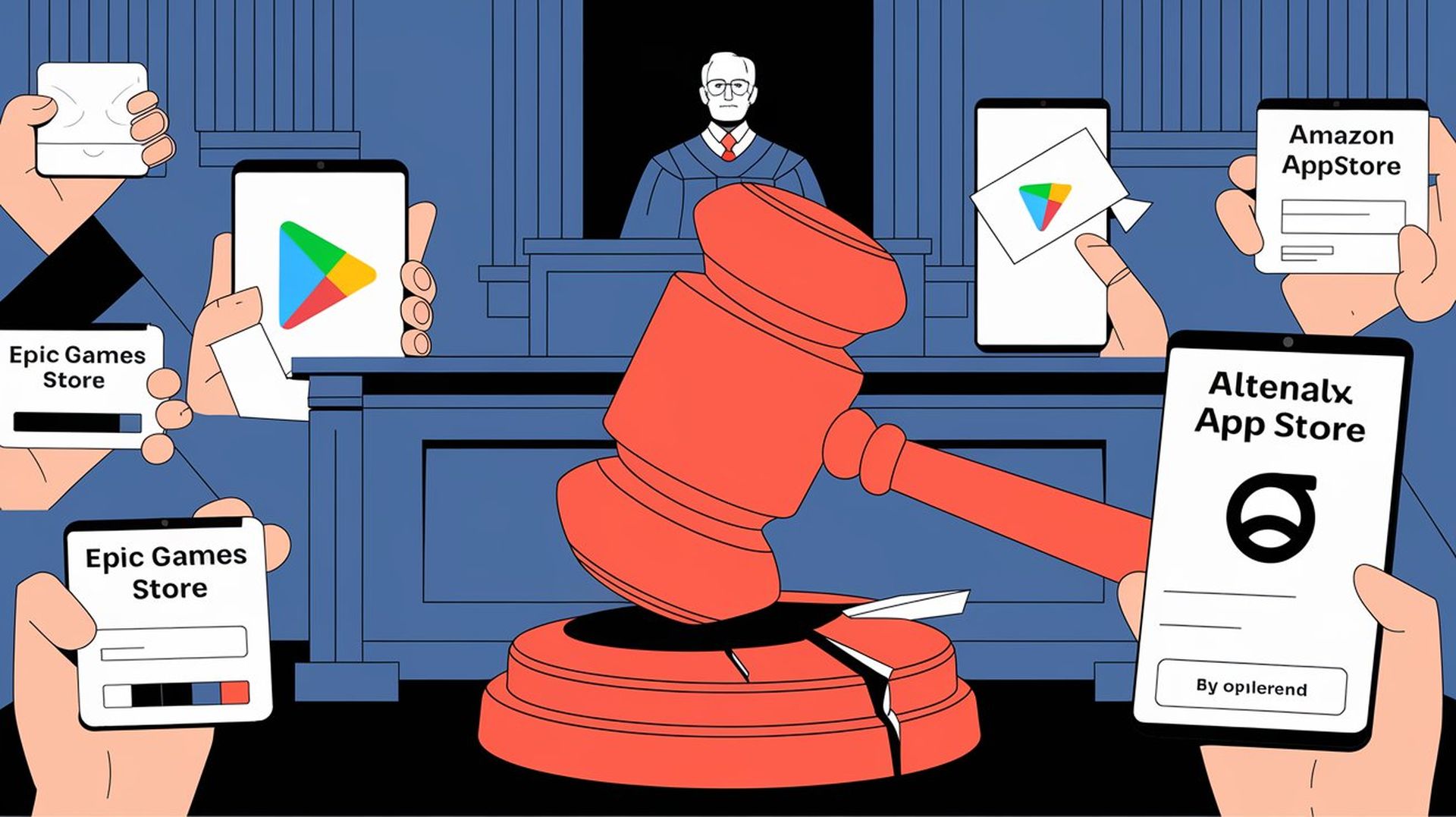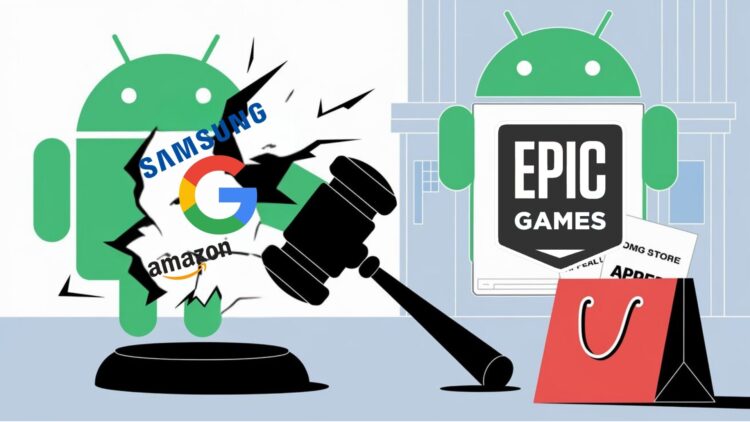A monumental ruling in Epic v. Google will loosen Google’s tight grip on the Android marketplace. Google. But Judge James Donato delivered his final ruling today, ordering Google to allow rival third-party app stores to join the Play Store for three years. This ruling involves several key changes, ranging from November 1st, 2024, onwards, which could change how Android apps are distributed if they’re not careful.
Competitors will get the whole open Play Store app catalog now since Google is ultimately forced to open its application store due to a legal order generated by the EC. It must also stop forcing developers to use Google’s billing system and link to external payment methods, along with many others. Google’s expected appeal is a big if, but these sweeping changes could open up the Android app marketplace to new levels of competition.

Epic’s plan works Google loses control of the Android
A ruling by Judge Donato forces Google to make numerous changes to its current Play Store practices. Between November 1st, 2024, and November 1st, 2027, Google must:
- Distribute third-party app stores within Google Play.
- Provide third-party stores with access to Google Play’s app catalog unless developers opt-out.
- Stop requiring the use of Google Play Billing for apps.
- Allow developers to share alternative payment options within the Play Store.
- Let developers link to ways to download apps outside of the Play Store.
- Allow developers to set their prices without being tied to Google’s payment system.
In addition, Google is now prohibited from ‘paying developers for exclusivity in the Play Store or forcing users to use the Store on a specific device or smartphone carrier.’ The ruling also prohibits the tech giant from discouraging competition by preventing app stores from pre-installing on devices. It disallows revenue-sharing deals that would stifle other stores from coming into existence. The goal: It will level the playing field and create real competition for the Android app market.
An illegal monopoly
That ruling is premised on a lawsuit brought by Epic Games in 2020. Epic Games, the developer of Fortnite, filed a suit against Apple and Google, accusing them of monopolistic practices. Ultimately, Apple emerged largely unscathed from its legal battles, while Google wasn’t so lucky. Google’s court found that deals with developers, carriers, and device manufacturers were an insurmountable barrier to competitors.
Epic claimed in its case that Google had an illegal monopoly because it forced payment app handling via its app store and paid developers against attempts to develop competing store software. That way, a company effectively made it impossible for other stores with the same developers and users to take off on the Android side. This has made it particularly difficult for third-party stores to take off on the Android side, and the Amazon Appstore is a sharp example.
The ruling hands rivals like Amazon and Apple a chance to break their dominance, with rival app stores poised to spring into life. The judge said that even a massive company like Amazon couldn’t compete with Google’s Play Store because of the deals and network effect set up there. With the Google Play app catalog now open, smaller stores might finally get a shot at competing.

The battle isn’t over yet
Judge Donato’s ruling was a clear win for Epic Games, but Google has some cards yet to play. First, the ruling clears the way for Google to collect fees for the policing it does of the Play store regarding security and safety, a potential source of contention going forward. Both companies are expected to continue clashing over what “reasonable measures” Google can take to protect its ecosystem without undermining the competition.
Additionally, Google has already said it plans to appeal the ruling. The company argues that these changes could result in “unintended consequences” that may harm users, developers, and device makers. The changes will go into effect as scheduled, but whether or not the appeals court will act to halt the changes is unclear, and Google will probably press for a delay while trying to argue its way around the ruling.
The court granted Google eight months to develop a plan to temporarily open its store to competition. The changes will be overseen by a three-person committee and allow developers to bid to opt out of the product being sold on rival outlets. That’s not to say this case is over yet; Epic is still pressing Google on many fronts.
What’s next for Epic and Google?
Epic wasn’t everywhere it wanted to be, but the now three-year period is big news for the Android app store. Epic’s request for a six-year ruling was tossed, and it was not forced to allow one tap sideloading or break its Android APIs and the Play Store tie. However, the ruling is expected to ignite the app store market.
In the meantime, Google is still pressing forward with its appeal and, for its part, is still delaying the injunction. The company has already filed a new blog post suggesting that there could be legal fights. The news is also being cheered by Epic Games, which is reveling in the ruling as a victory for its own Epic Games Store and other third-party app stores that might benefit from Google being forced to play along.
While this is a landmark case for Android users and developers, the legal drama continues. Appeals are pending, and more lawsuits have already been filed in the Epic v. Google saga.
Image credit: Furkan Demirkaya/Ideogram





